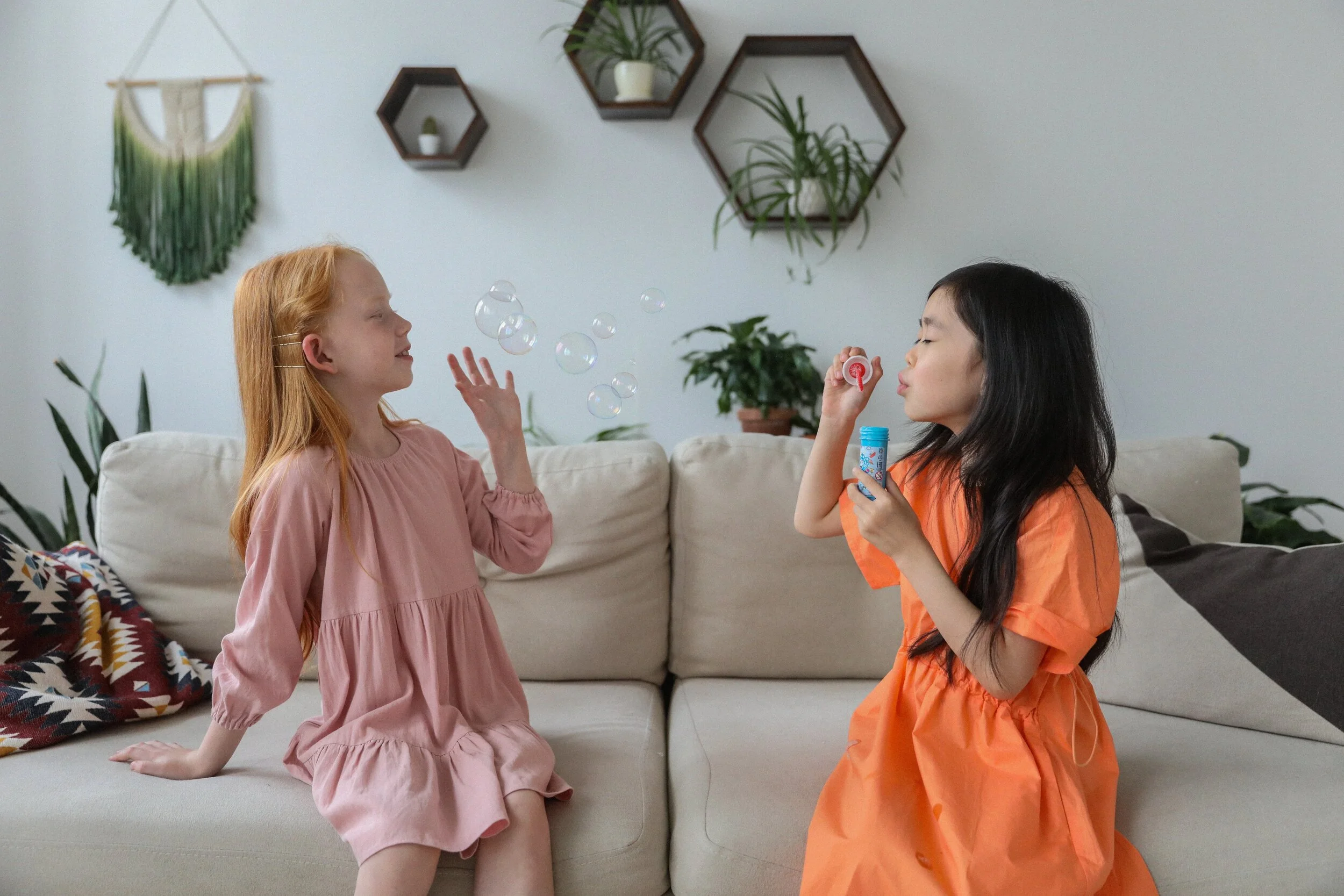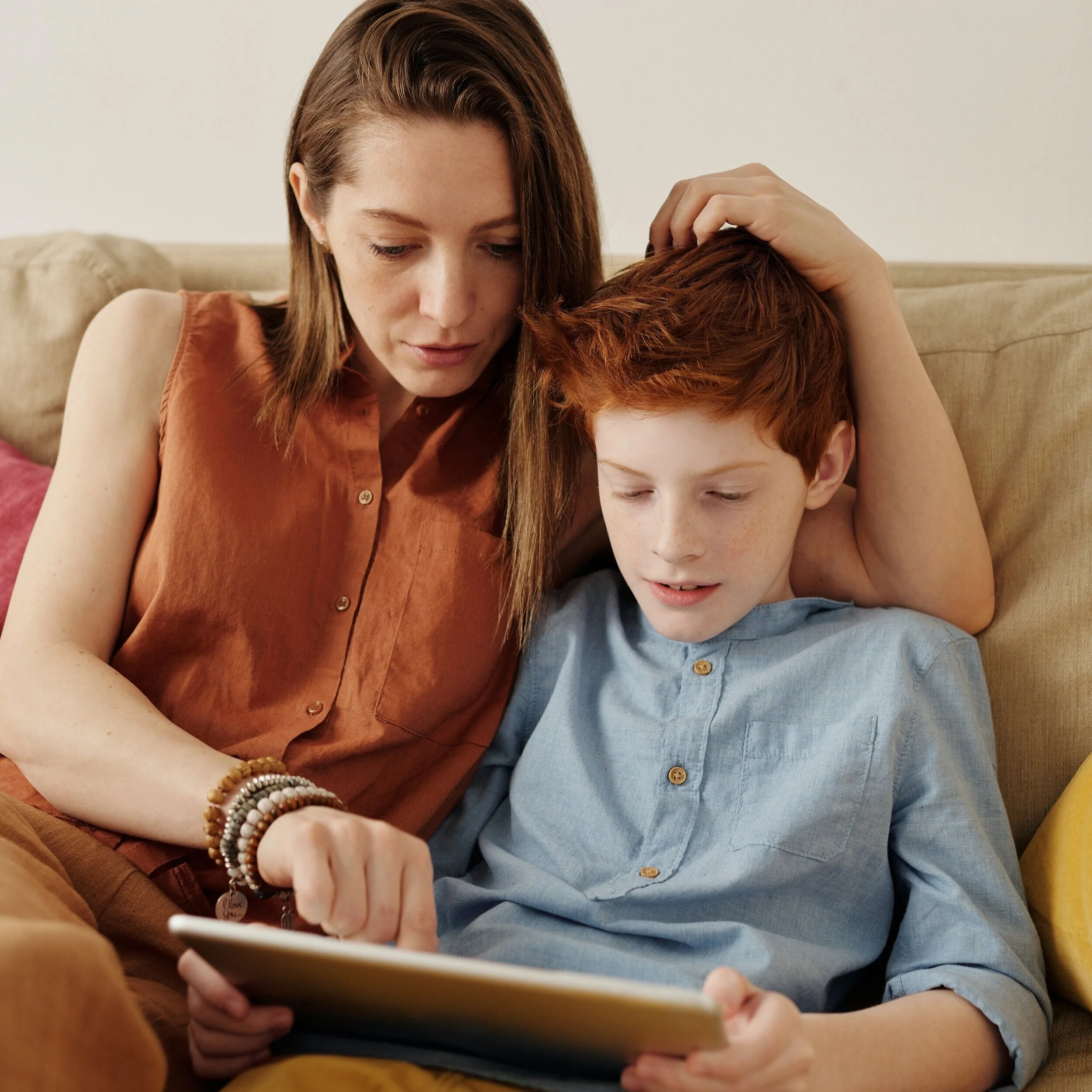Positive Coping Skills Course for Kids
Tools for When “Take a Deep Breath” Isn’t Cutting It Anymore
If you’ve got a kid with strong emotions, I’m sure you’ve heard phrases like “take some deep breaths,” “just breathe,” and “do your breathing.” They’re often said by well-meaning teachers, babysitters, and parents who know that sensitive kids need tools to deal with their overwhelming feelings. Taking a deep breath is good advice, but if your kid is like the children I know, it’s often met with an eye roll.
Coping skills are simple, but they can be tricky to learn. Many kids try a strategy for the first time when they’re already in the middle of a meltdown. This makes sense—it’s when kids need help the most—but it sets them up to fail. Just like you practice a fire drill many times to prepare for an actual fire, kids need a solid understanding of coping skills before the meltdown starts.
Sensitive kids need a toolbox of positive coping skills to help them deal with the daily stresses of life. Not every skill works for every kid, so they need to figure out what their own tried-and-true favorites are. Knowing what skills work best and when to use them sets kids up for success both now and in the future. Coping skills don’t have an expiration date: they’re lifelong skills that continue to help as a child grows up.
Signs Your Child or Tween Could Use Coping Skills
Do any of these situations sound familiar to you?
You feel like you’re walking on eggshells around your child to avoid a meltdown
The family is bending over backwards to avoid doing things that set off anxiety
Your child has always felt things deeply, and has a hard time managing strong emotions
Talking about the problem doesn’t seem to help…in fact, sometimes talking makes things worse
Your child knows her feelings are overwhelming her, and she’s frustrated, too
If you recognized yourself or your child in that list, you’re in the right spot! I hear these concerns from kids and families in my office every day. I created this course because these are the coping skills I wish kids had before starting therapy.
Learn Coping Strategies At Home With Self-Help Courses
These online courses are not therapy. They can’t replace counseling and the big changes that happen through a relationship with a caring therapist. It probably goes without saying, but I’m not able to diagnose or treat any mental health problem over a pre-recorded, online class.
What coping skills can do is give your child a head start on dealing with big feelings. They can give both of you tools to use right now, while you’re looking for a counselor, sitting on a waitlist, or trying to figure out next steps. They can give you a road map to help your child, so you aren’t guessing about what to say when. My hope is that a coping skills self-help course can make strong feelings less scary, and empower both you and your child to feel better, faster.
Kid-Friendly Lessons Make Coping Skills Easy to Learn
My courses are divided into two parts: half for kids, and half for parents. In the kids’ section, you’ll find a video series designed with kids and tweens in mind. There is nothing “little kid” about these coping skills: they’re the same tools adults use to deal with anxiety and other strong feelings. These are super effective skills…but they can also be dry and abstract.
Kids as young as 8 are able to learn complex skills if they’re presented in a child-friendly way. One of my favorite tools to teach kids is something called metacognition, which is learning to think about your own thoughts. This helps kids to stop taking their worries at face value, and learn how to question their thoughts before deciding whether or not to act on them.
In their coping skills lessons, kids will learn:
Why we have negative feelings (and why they’re not a bad thing)
How to relax the body and find a sense of calm
Sensory-based ways to cope with stress
How to turn negative thoughts into more helpful ones
Because the courses are pre-recorded, your child can move through them at his own pace. You’ll have permanent access to them, so he can brush up on his skills whenever he’d like.
Parents Need Coping Strategies, Too
Anxiety affects the whole family! Half of each coping skills class is a parent-only section designed to help you help your child. It’s one thing for kids to learn coping skills, and another for them to actually put them into practice. That’s where your help comes in. I’ll also share some simple ways you can keep strong feelings from escalating into meltdowns, from a parenting angle. In the parent sections, you’ll learn:
How and why these coping skills work, and when to try them
Common signs of anxiety or stress in children
How to stop bending over backwards to avoid meltdowns
Ways to support your child in managing her feelings
I’ll follow this section of the course up with a list of resources, in case you’d like to keep learning more. At the end of the video series, you’ll find recommended books, apps, and other media you can use to keep the conversation about feelings going with your child.
Proven, Age-Appropriate Strategies for Kids and Their Parents
Worry-Free Tweens—$99
This is a step-by-step coping skills guide for anxious kids and their parents. I designed it with tweens in mind, so it’s best for kids ages 8 to 12. Kids can watch videos at their own pace to learn skills they can put into practice right away. Parents will learn these skills, too, as well as get extra tips on how to best handle anxiety at home. My hope is you’ll both come away feeling more empowered to deal with worries the next time they pop up.
This is an educational course, and it’s not intended as a substitute for therapy. It can’t diagnose or treat a mental health condition.
Kids’ Coping Skill Course FAQ
How much does the course cost?
Each coping skills course costs $99. It’s a one-time payment that gives you permanent access to the videos.
What age range is the course intended for?
Generally, it’s the best fit for kids ages 8-12. I mostly work with tweens, because I love how quickly and easily they can pick up coping skills like these!
How long is the course?
You can expect about 2 hours of content: 1 hour for parents, and 1 for kids. The lessons are broken down into bite sized videos that are usually 5 minutes or less, so it’s easy to move at your own pace.
How can I access my course?
My courses are hosted on Teachable, a website for taking online classes. Clicking the “enroll now” link will take you there to finish payment a nd access your course. Once you’ve paid, you can go back to the website any time to watch or re-watch the videos.
Are courses like these the same as therapy?
No. This is an educational course, not therapy. The course is pre-recorded and not tailored to meet a child’s individual needs. It’s not a form of therapy or a substitute for therapy, and it can’t be used to diagnose or treat any mental health problems.




